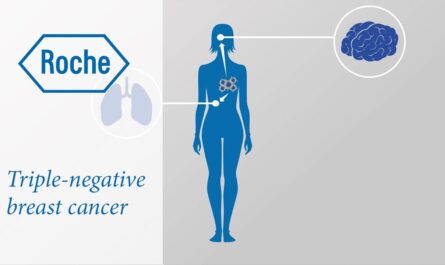New findings from two studies published in Menopause suggest that middle-aged women who suffer from migraines, hot flashes, and night sweats may not have to worry as much about their cardiovascular health, as long as they address other risk factors. The studies indicate that women who experience both migraines and long-term hot flashes and night sweats may have an increased risk of cardiovascular issues. However, for women without both of these symptoms, focusing on preventive measures such as getting enough sleep, exercising, maintaining a healthy diet, quitting smoking, and managing blood pressure, blood sugar, cholesterol, and weight can significantly reduce cardiovascular risk.
The studies were conducted by researchers from the University of Michigan who analyzed the data from a long-term study of more than 1,900 women. The women, who were initially in their late teens to early 30s and are now in their 50s and 60s, provided valuable insight into the factors that shape health leading up to menopause and beyond. The results show that women with persistent hot flashes and night sweats have an increased risk of stroke, heart attack, or other cardiovascular events if they also have migraines. However, women with minimal symptoms of hot flashes and night sweats in their 50s or those whose symptoms increased over time did not have an excess cardiovascular risk, irrespective of their migraine status.
The studies highlight the importance of addressing risk factors and making lifestyle changes to control both menopause symptoms and cardiovascular diseases. The American Heart Association identifies eight essential risk factors that individuals can manage to reduce their chances of heart disease and stroke. These factors include smoking, poor sleep, poor eating habits, lack of activity, genetic predisposition, life experiences, hormonal history, and depression. By addressing these factors, women can significantly reduce their risk and take control of their health.
It is important to note that while new injectable migraine medications called calcitonin gene-related peptide (CGRP) antagonists have shown promise in preventing migraines, they can be costly and may not be covered by insurance for all individuals. However, for those with persistent migraines, these medications, in addition to identifying triggers and using other preventive measures such as pain relievers and antiseizure medications, can be beneficial.
Furthermore, the studies indicate that antidepressant medications may help ease menopause symptoms such as hot flashes and night sweats. Healthy sleep habits and the short-term use of hormone therapy patches, specifically estradiol-based ones, have also been found to reduce hot flashes without any associated cardiovascular risks. On the other hand, over-the-counter supplements and herbal remedies have not been proven to be effective, and their regulation is less stringent than that of medications.
In conclusion, while women with persistent migraines and long-term hot flashes and night sweats may have an increased risk of cardiovascular issues, most middle-aged women can reduce their risk by addressing other risk factors and making healthy lifestyle choices. Preventive measures such as sleep, exercise, a healthy diet, smoking cessation, and management of blood pressure, blood sugar, cholesterol, and weight are key to maintaining good cardiovascular health during and after menopause.
*Note:
1. Source: Coherent Market Insights, Public sources, Desk research
2. We have leveraged AI tools to mine information and compile it



